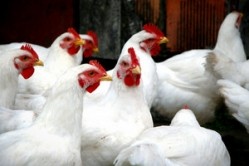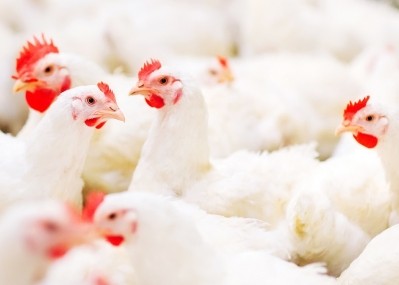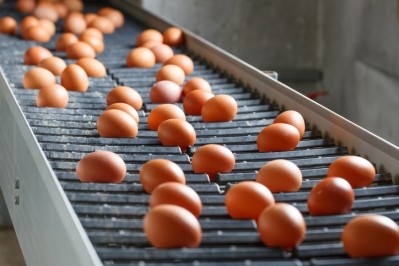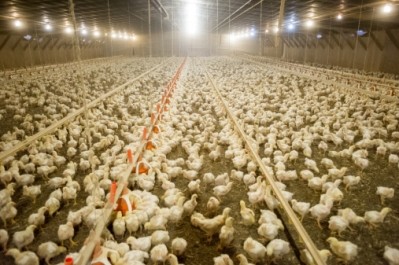Trace minerals may play a role in chick quality: Zinpro focuses on broiler embryo nutrition

Dr Annsofie Wahlstrom, poultry research nutritionist at Zinpro Europe, told feednavigator that while most producers do have a good understanding of broiler breeder nutrition they are less informed about the nutritional limitations and needs of the broiler embryo before hatch.
"We are looking to see how we can boost the quality and liveability of the day-old chick through improving embryonic stage nutritional approaches," she said.
The impact of trace minerals such as zinc, copper and manganese to the growth and development of embryos, said the poultry nutrition expert, is supported by many publications showing that mineral deficiency can reduce hatchability, increase mortality, as well cause skeletal, immune and cardiovascular system disorders.
Studies show that feeding zinc, in particular, to broiler breeders helps improve embryo bone development, chick length at hatch and progeny immunity, said Wahlstrom.
Trace mineral re-think
She also spoke of the need to define the trace mineral requirements to optimize broiler breeder health and performance.
“Current data on trace mineral requirements date from NRC 1994, which were based on outdated research that had relied on trials undertaken from a deficiency point of view,” said Wahlstorm.
And the Zinpro researcher said more is not always better when it comes to trace mineral supplementation: "The over-supply of minerals in commercial feed mixes is the most common reason for a reduction in the bioavailability of the various nutrients. It is essential to get the balance and the interplay between the minerals right for better absorption."
Best practice seminar
Zinpro recently held a seminar on best practice in broiler breeding management in Madrid with talks from Dr Michael Hellwig, director of nutrition at US chicken producer, Pilgrim's and other leading poultry nutrition specialists.
Wahlstrom said the event was timely as poultry producers face new disease control challenges as they learn how to manage antibiotic-free flocks.
“The event brought together nutritionists, animal genetic experts, premix company representatives as well as poultry producers. It was a rare occasion for all these broiler experts to gather, interact and learn from each other, and the seminar highlighted the thirst for knowledge on how to improve performance in this poultry segment,” said Wahlstrom.
Early stage nutrition
She said the presentation by Dr Zehava Uni, professor at the animal science department of the Hebrew University of Jerusalem, also highlighted the benefits of nutritional supplementation at the embryonic stage in broilers.
Dr Uni said the fertile egg has a defined-nutrient composition but that the rate and mechanism of digestion and absorption of these nutrients by the embryo during incubation is not clear.
“The embryo starts to consume yolk nutrients intensively only from mid-incubation on, while intensive consumption of fat from the yolk starts in the last week of incubation. Nonetheless, there is a differential uptake of yolk nutrients during incubation. This uptake is dramatically influenced by the hatchery conditions.
Research has shown that during the last days of incubation, the levels of phosphorus, iron, zinc and copper in the yolk are low. These minerals are consumed from the yolk and leave the embryo as of day 17 without an external source of minerals for at least 6 days.
This may impair the embryonic and hatchling development, which may lead to leg and skeletal problems and an immature immune system in rapid growing strains,” said the Israeli academic.
Dr Uni said her findings show such health challenges can be prevented by supplementing the nutrients to the breeder hen diet or by means of in-ovo feeding - insertion of a nutrient solution into the embryonic amniotic fluid - at day 17 of incubation.
Feed response in birds
Dr Hellwig, in his talk, advised breeder managers to maintain the birds’ feather condition to better control body temperature and protect their skin from damage during mating.
He said they should look at birds based on how they respond to the feed they are offered and try to be ahead of possible deficiencies or problems.
During rearing, weight gain from 16 to 20 weeks should be 33% and from 20 to 25 weeks about 900 grams.
If birds are behind then additional feed should be given, but do not provide excessive amounts of feed, said the Pilgrim’s broiler expert.
Hens getting on peak too soon result in peritonitis, said Hellwig, which results in health problems, a loss in medication effectiveness and an increase in mortality.













